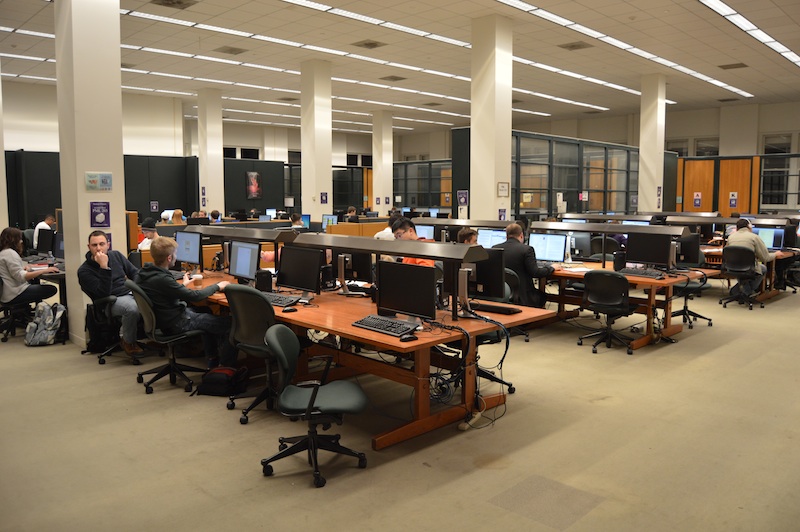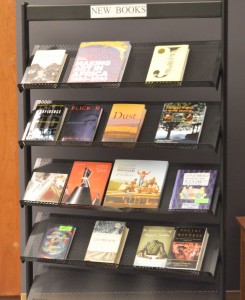
Last summer, the Pickler Memorial Library staff reworked its collection development policy, which determines how and why certain resources find their way into the permanent collection.
The revised policy will reinforce the idea that the main priorities of the library are to support the curriculum, aid students in their academic programs and research, and enhance faculty teaching and scholarship. To accomplish this, library staff liaisons work closely with faculty members in every department to decide what resources will be beneficial to a particular course or subject of inquiry.
 Richard Coughlin, dean of libraries and museums, says factors such as cost and how a new addition will benefit the collection are taken into account before the library reaches a decision about whether to acquire a new work. Coughlin says one thing many students might forget is how much of the library’s finances go toward behind-the-scenes costs — largely electronic resources, such as subscriptions to online databases like EBSCOhost and JSTOR.
Richard Coughlin, dean of libraries and museums, says factors such as cost and how a new addition will benefit the collection are taken into account before the library reaches a decision about whether to acquire a new work. Coughlin says one thing many students might forget is how much of the library’s finances go toward behind-the-scenes costs — largely electronic resources, such as subscriptions to online databases like EBSCOhost and JSTOR.
Coughlin says the library always looks to build its General Collection — primary sources and other materials that especially will be helpful to students — before looking to procure more peripheral resources, such as rare texts for Special Collections or documents concerning local history.
Even popular media, such as feature films and magazines, have their place in the University curriculum, Coughlin says. He says while the majority of the library is meant for academic use, students should have access to more entertaining media as well.
Janet Romine, head of public services and circulation at Pickler, further explained how items are added to the collection. Romine says many library purchases are faculty driven. She says these purchases are largely either physical materials, such as books, or digital media, such as online database subscriptions.
These choices, Romine says, can happen because of an instructor changing a course or can be recommended by outside providers, such as book publishers. New additions come in weekly, she says.
Romine says though professors and other faculty members make up the majority of changes to Pickler’s collection, students also can have a say by filling out a request purchase form located at the library website.
